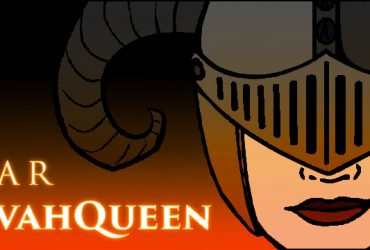At this point, it should be no secret I like house rules and variations on a game’s typical mechanics. Whether it’s Pathfinder or another RPG I just like tinkering. Effective house rules and variants should improve the play experience either by streamlining play or by adding to the tone or flavor of a setting. My players and I have been having a running conversation about some of the parts of Pathfinder we’d like to change. Some of our biggest sticking points are in the skills system so I thought I’d share some of the experimental solutions I’d like to try in the near future.
Problem: Too Few Skill Points
Yeah, we’re still fighting with this one. It really is hard sometimes to fully realize your character concept when you only have two or three skill points but you also don’t want to throw off the game’s balance. Despite the optional rules that appear in Pathfinder Unchained I think there might be an easier, more elegant solution than just adding skill points that must be applied to “background skills.”
Alternate Solution: Every character selects a background career and notes it on his or her character sheet. Characters may make skill checks, related to their background equal to ½ the character’s level plus the relevant ability modifier.
For example, a former pig farmer from Sandpoint turned fighter finds himself beginning his adventuring career in Korvosa. With his limited skill points, he realizes he’s skimped on handle animal but still finds he’s been roped into a strange blood sport trying to catch a pig in the rain and muck. The GM should allow the player roll his background skill score. Later while on the road he and his party are faced by a stubborn aurochs blocking the road unless the GM is feeling particularly generous the fighter should probably let someone else try to handle the animal off the road. Finally, since most of the action was supposed to take place a good distance from his hometown our example fighter also neglected to place any points in Knowledge (local) but suddenly a side plot has him back in Sandpoint. Again, he could roll his background score to emulate Knowledge (local) while in Sandpoint.
Problem: Skills Are Not as Exciting as They Could Be
So when you compare skill-use to combat, combat is clearly more fun. But good storytelling involves challenges that can’t just be solved with the pointy end of a sword.
Alternate Solution I: So it looks like our very own Alex Augunas solved much of this particular problem for me with the Skill Challenge Handbook. Alex’s very favorably reviewed system draws on existing mechanics and frames skill challenges in a familiar format that brings the depth and excitement of combat other types of encounters. Skill challenges, like haunts, traps, and fights, come with challenge ratings and XP awards, and so there are some skill-uses that don’t require this sort of treatment to be improved.
Alternate Solution II: Some skills take several rounds to accomplish, not normally a problem mechanic, but when a PC has committed to deactivating a trap or a mechanical hazard in the middle of combat it can be awfully boring for the next several rounds while they wait for that action to finally be completed. Drawing on material from the Index Card RPG from Runehammer Games we can change how long duration actions work by making them a variant form of extended challenges. Much like you roll for damage in combat you can roll for effect on any long duration task. This is what ICRPG calls effort.
We can accomplish this in Pathfinder pretty easily instead of setting a duration in a random number of rounds the task has a hit point like value we’ll call challenge points. In most cases, the player rolls to reduce the number of challenge points. Once those points are reduced to “0” the task is resolved.
For simplicity, I suggest multiplying the maximum number of rounds the task would take by 5 to determine the task’s challenge points. For example: disabling a difficult device normally takes 2d4 rounds for a maximum of 8 rounds or for our system 40 challenge points.
Players attempting the task they will typically roll 1d6 + relevant ability modifier lowering the challenge point total. Being trained in a skill increases the die by one step (just like increasing in size increases damage), masterwork tools also increase the die by one step. A skill test like this isn’t failed on a single roll even if it normally would be. In the case of skill-uses that would fail outright, the GM should set a number of consecutive failures, typically two or three, after which the task is ultimately failed.
Optionally, a GM could allow for critical successes. Again, like in combat a natural 20 results in a critical threat and a second successful skill check would confirm the threat and results in rolling double “damage” against a task’s challenge points. If you use this system natural “1’s” should provide no progress against the task’s challenge points.
If there’s an aspect of the rules that aren’t meeting your expectations talk to your group. Together, you may be able to find ways to shore up those parts of the system that don’t quite work for your group.







